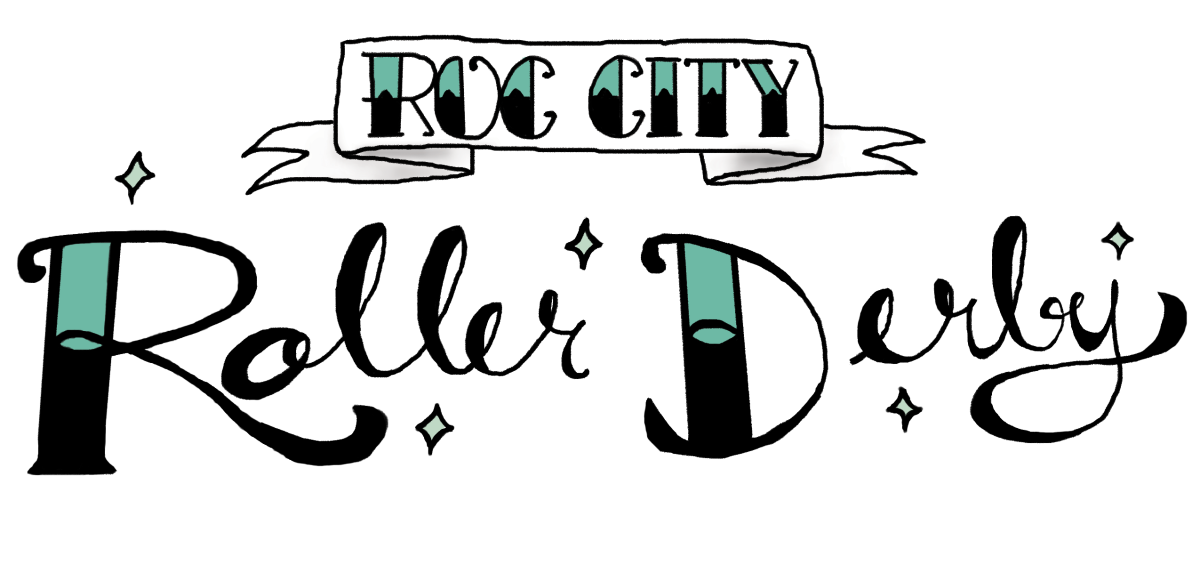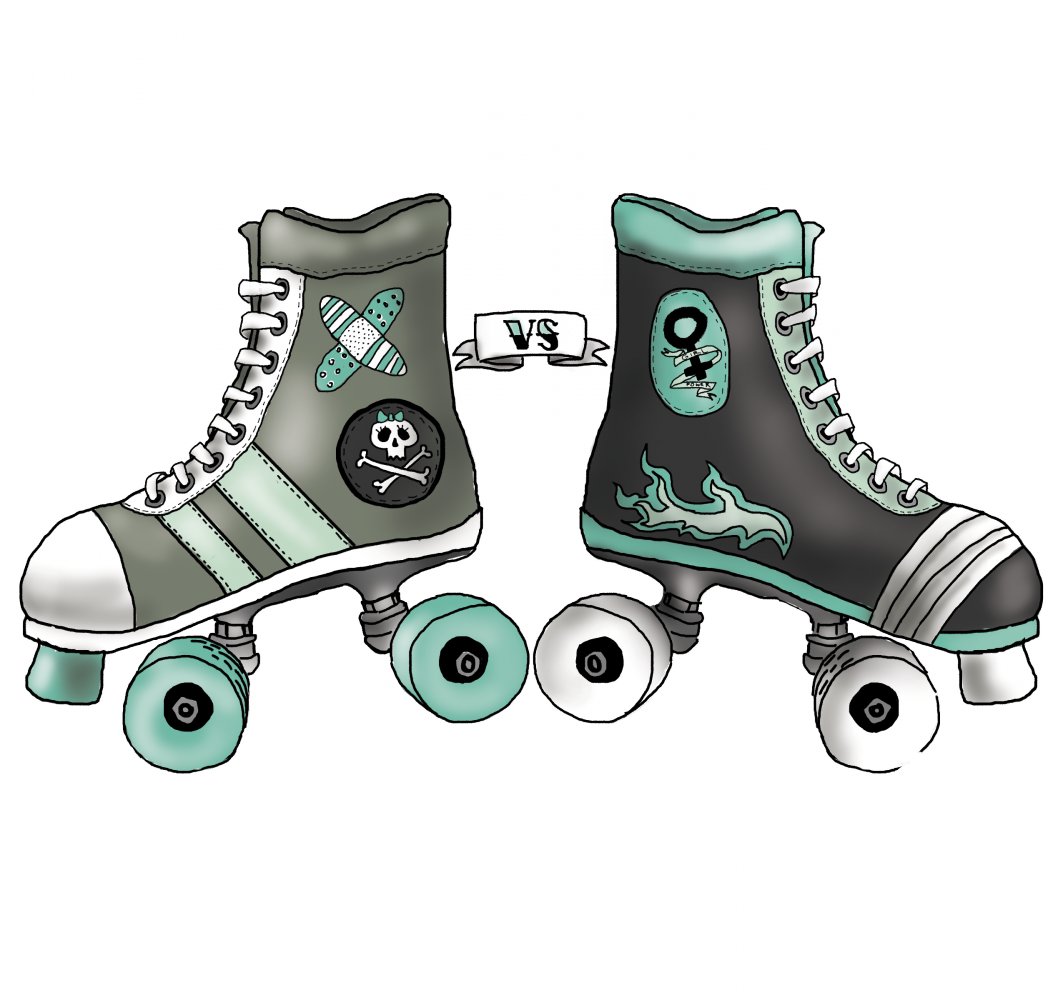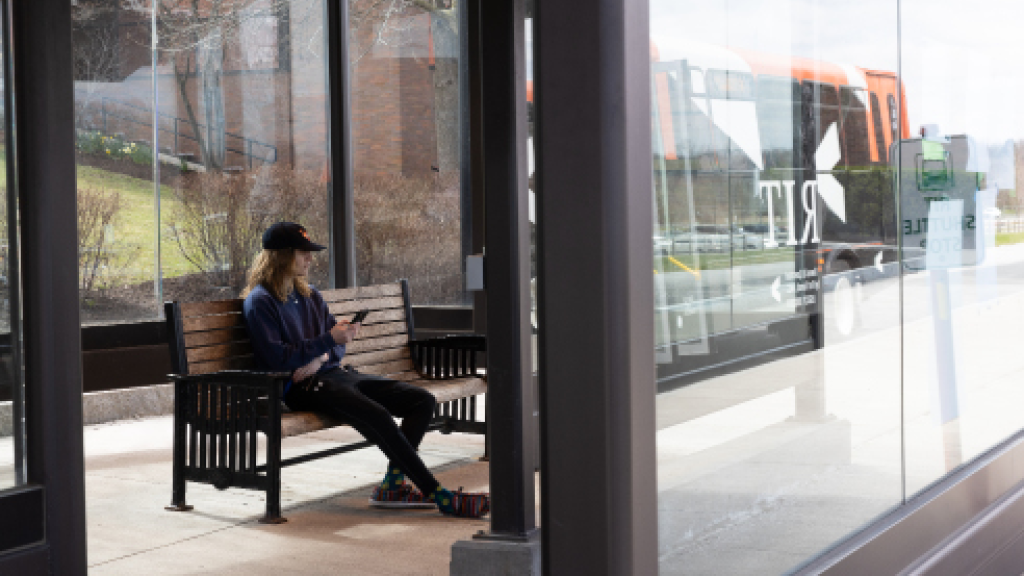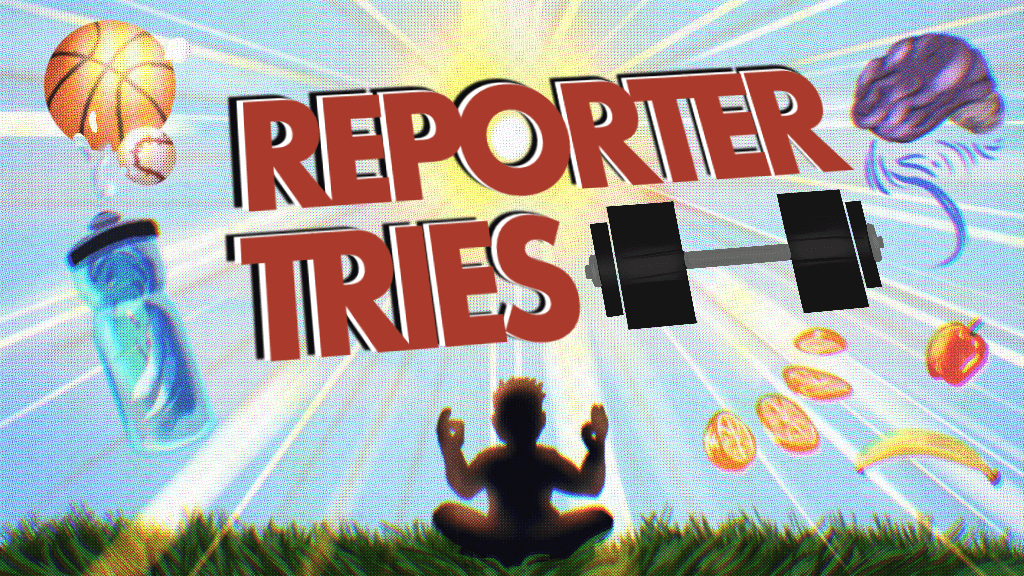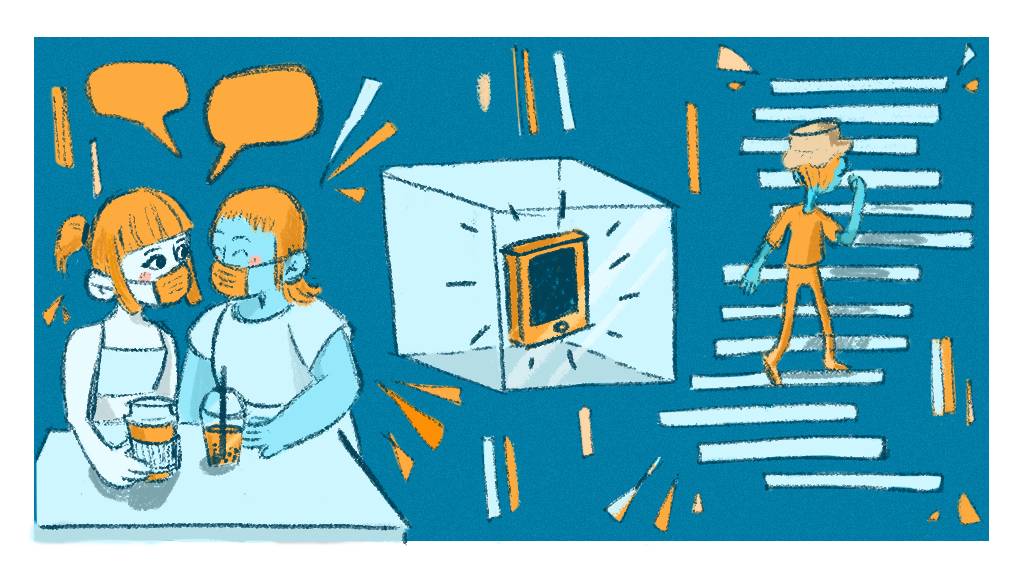“I’ve been doing it for about a year now, and I’ve had two sprained ankles, a sprained knee, my wrists, a black eye,” Lyndsey “Sweet Sexteen” Rae said, taking a pause to recall other injuries. “She went headfirst into a brick wall,” she said as she gestured to Sammy “Sammy Knockout” Martin.
“Scariest experience ever,” Martin said.
From these descriptions and nicknames, one would expect the pair to be referring to some sort of underground female fight club, played out in seedy bar basements between intermittent bursts of police raids. Martin and Rae, however, are part of the Roc City Roller Derby, one of 302 leagues spread across the world under the Women’s Flat Track Derby Association (WFTDA). The sport consists of two teams of up to 16 players each, set on four-wheel, roller-rink-style skates. The matches are separated into two 30-minute halves and further broken into 2 minute “jams”; five players from each team are set rolling in opposite directions on the track, four blockers and one jammer, whose goal it is to lap the other team. As the title suggests, the blockers’ job is to protect the jammer while stopping the opposing team’s jammer by any means necessary. Roller Derby, which was once relegated to the TV sports entertainment world along the lines of WWE, has reinvented its image in the past decade into a serious, competitive and often violent women’s sport on wheels.
“It’s not question of if you’re going to get hurt, it’s a question of when,” Rae said. “We’ve seen broken legs, broken arms, tons of black eyes…”
“And Skate Rape, which is when you go down and your crotch goes directly into the skate. It’s horrible,” Martin said with wide eyes.
Despite these graphic descriptions of violence, neither Rae nor Martin fits the mental image that popsconjured up when picturing a woman involved in a full-contact sport. Each standing only a hair above 5 feet and combined just cracking the 200-pound mark combined, one would expect the pair to be involved in something more akin to softball than in a sport where broken legs are business as usual. This preconception is something the sport of Roller Derby, along with its players, aims to shatter with brute force.
“It’s very intense. We come home from practice covered in sweat, cuts, bruises, breaks, sprains, bloody noses and split lips,” Rae said. “Derby girls have a sort of stigma that we’re just a bunch of big, loud lesbians out always getting into trouble, and while that may be true for some, most of us are really dedicated really dedicated to our jobs. We want to promote positivity amongst female athletes, and in the community as well. We always have at least one charity benefit for each bout. We’re non-profit, and our real goal is all about community involvement. We can get rowdy, though.”
Alongside charity, the spirit of positivity, empowerment and local enrichment is an extremely important aesthetic of a grassroots sport like Roller Derby. Businesses that are uniquely Rochester are chosen as the sponsors for Roc City Roller Derby, ensuring that a strong emphasis on community is always at the forefront for each bout.
“We’re [Martin and Rae] actually heads of the sponsorship. And because we’re family-based, we try to stay with local businesses who we believe in. We currently have Record Archive, Voodoo Monkey Tattoo and a few other local names that we’re not going to throw until it’s all concrete,” Rae said.
“We also have Salvatore’s as a sponsor and had a couple realtors in the past as sponsors,” Martin added.
“Yeah, and we haven’t had exactly had sponsorship, but a lot of support from Dickiesa, lot of local bars like the Angry Goat. Water Street Music Hall has given us a lot of support. American Villa has also been extremely supportive, they helped design a lot of our merch.”
This emphasis on community and a DIY aesthetic is a defining factor in what makes Roller Derby such a powerful sport alongside its carnage. Even with the opportunity to compete against players from around the world at the WFTDA championships, harsh words being thrown around, the broken teeth, bloody noses, broken bones and internal bleeding, what shines through is a sport epitomized by its spirit of compassion and teamwork.
“Despite everyone being loud, and they’re going to tell you exactly what’s on their mind on their mind and they’re not going to sugarcoat., Tthe people I’ve met through Roller Derby are some of the kindest, most compassionate people I’ve met in my entire life. When you meet people and tell them ‘I’m a derby girl,’ they are always like ‘Oh, you must be a fucking badass.’ No, that’s just on the track. I think I’m the only person left on the league that still says sorry when I knock someone down,” Rae said.
“I always hear her on the track saying sorry, and I’m yelling ‘Stop fucking saying sorry!’,” Martin laughed.
Alongside this mentality of compassion and the utmost concern for the community comes the even greater message of what Roller Derby stands for:, nd that is women. Women who are strong, powerful and resilient, both physically and emotionally. What Roller Derby truly represents is breaking the preconceptions of what a female athlete is, represented in a sport created from the ground up with this sort of independence in mind. Though male and co-ed leagues are popping up, itwhat can not be forgotten is that at its core, Roller Derby was birthed in defiance of the preconceived notion of how a woman should act.
“I had a friend who I saw when I came home from practice complaining about how sore I was,. aAnd he said ‘Oh, but you don’t actually hit each other, right?’ And I’m like, ‘What’re you talking about? What are these bruises? Am I throwing myself into a wall?’ It’s a real sport, it’s not staged,” Rae said. “People have this idea of what women are supposed to act like. We’re supposed to be dainty and reserved.”
“Not tough,” Martin added. “Can’t take a hit.”
“It’s a brutal sport, and it challenges the archetype that we’ve been expected to view ourselves as, and it’s a big push back,” Rea continued. “That idea of what a woman is is antiquated. We’re loud, we’re opinionated. We’re smart, we’re independent.”

